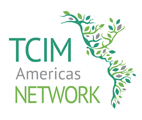Sao Paulo Declaration refers to the importance of health information of TCIM
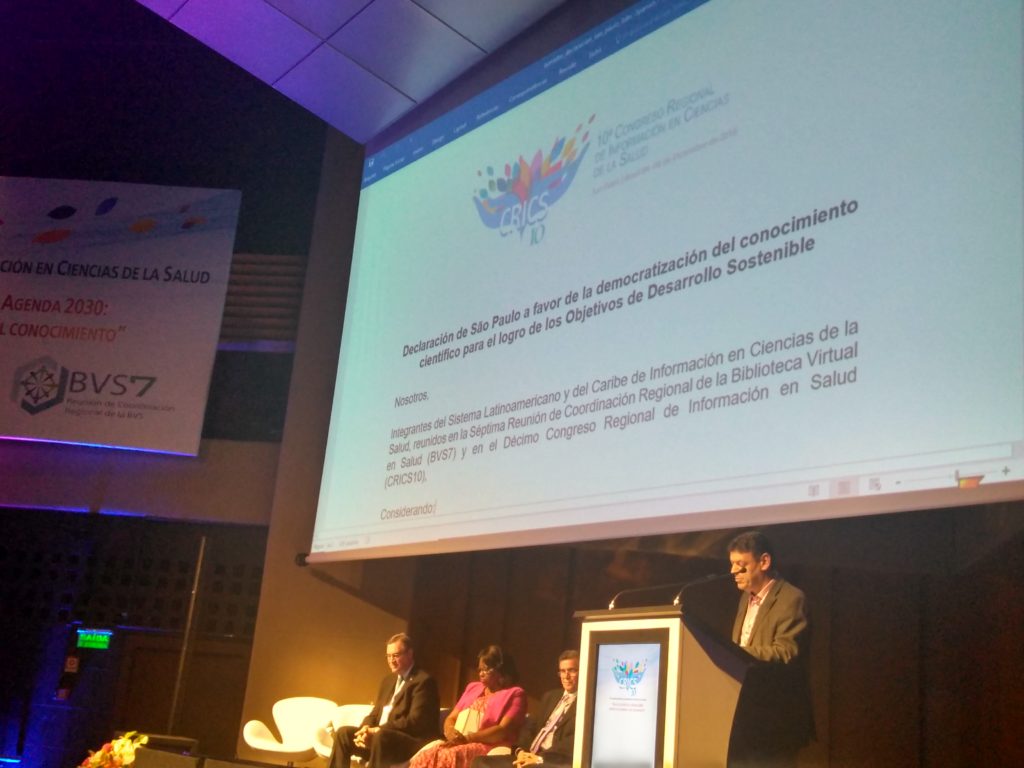
Durante la pasada Reunión de coordinación Regional de la BVS 7, en el marco del CRICS 10, en diciembre de 2018, en Sao Paulo. Los participantes a estos eventos, integrantes del Sistema Latinoamericano y del Caribe de Información en Ciencias de la Salud, reunidos en la Séptima Reunión de Coordinación Regional de la Biblioteca Virtual en Salud (BVS7) y en el Décimo Congreso Regional de Información en Salud (CRICS10), aprobaron la Declaración de Sao Paulo, en la cual se referencia la importancia de fortalecer la información en salud en Medicinas Tradicionales, Complementarias e Integrativas -MTCI.
La BVS MTCI Américas, dentro de sus objetivos principales tiene el promover la visibilidad, el acceso, uso, y generación de contenidos científicos, técnicos y educativos que contribuyan a la promoción, desarrollo e integración de las MTCI en los servicios y sistemas de salud de la Región de las Américas, es por eso que la BVS MTCI Américas y la Red MTCI Américas han incluido en su Plan estratégico del 2019, la promoción de la Declaración de Sao Paulo, y se acoge a trabajar en concordancia con los acuerdos de la Declaración.
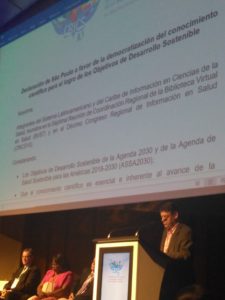
São Paulo Declaration for the Democratization of Scientific Knowledge to Achieve the Goals of Sustainable Development
We,
The Members of the Latin American and Caribbean System of Information in Health Sciences, gathered at the Seventh Regional Coordination Meeting of the Virtual Health Library (VHL7) and the Tenth Regional Congress on Health Information (CRICS10),
Considering:
- The Sustainable Development Goals of the 2030 Agenda and the Sustainable Health Agenda for the Americas 2018-2030 (ASSA2030);
- That scientific knowledge is essential and inherent to the advancement of research, education and methodological and technological innovations;
- That access and dissemination of open scientific knowledge empowers researchers and professionals committed to the common good;
- That access to evidence based on relevant and up-to-date scientific knowledge empowers societies and citizens for social, economic and cultural development, for the benefit of social well-being and especially for overcoming social inequities;
- That public policies and decision-makers need accurate, relevant and up-to-date information so that their actions are based on coproduction with scientific, professional and social actors;
- That digital technologies facilitate the democratization of access to information and the systematic and continuous improvement of health;
- The society’s growing demand for robust, effective, accessible and evidence-based health systems that include, when appropriate, where appropriate, scientifically proven traditional and complementary medicine.
We urge to:
The leaders, authorities, researchers and other professionals of the Latin America and the Caribbean countries and territories, as well the Pan American Health Organization (PAHO) and its Latin American and Caribbean Center for Information on Health Sciences (BIREME), the national health systems and research, education and health care institutions of health,
To:
- Recognize the importance of intersectoral and complementarity between scientific, technological and traditional knowledge and information to inclusive health systems that respond to the needs of all people, in a comprehensive manner;
- Include in their programs, projects and strategic actions the promotion and use of information and open scientific knowledge to strengthen regional and national health policies at all levels;
Formulate policies and make decisions based on scientific evidence available in health information systems; - Develop capacities for the generation, transfer and use of evidence and knowledge in health, promoting research, innovation and the use of technologies.
- Align technical cooperation strategies and practices in scientific and technological information between countries and institutions with regional and national programs and with the Objectives of Agenda 2030 and ASSA2030;
- Consider the vision and principles of Open Science in the development of strategies and practices of technical cooperation in scientific and technological health information;
- To consider the vision and the principles of Citizen Science in planning, evaluation, production and scientific and technological dissemination in health;
- Promote policies, programs and training actions in national systems of scientific information, regarding good practices of information and knowledge management;
- Recognize and promote the Virtual Health Library (VHL), the Index of Scientific and Technical Literature of Latin America and the Caribbean (LILACS) and Descriptors on Health Sciences (DeCS) as methodologies and instruments of free access, visibility and quality of information and scientific and technological production in health in Latin America and the Caribbean; and
- Expand the national and international collaboration between social actors that support the VHL, LILACS, and DeCS through training and technical development programs, led by BIREME for the creation of products, services, methodologies and collection technologies, registration, preservation, publication and dissemination of scientific and technical information in national systems of education, research and health care.
City of São Paulo at December 4th 2018.
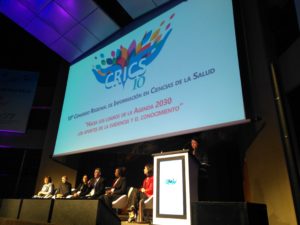
Inaguración de la Reunión regional BVS 7- Lectura de la Declaración de Sao Paulo
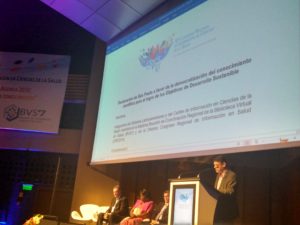
Clausura BVS 7- Lectura de la Declaración de Sao Paulo aprobada


